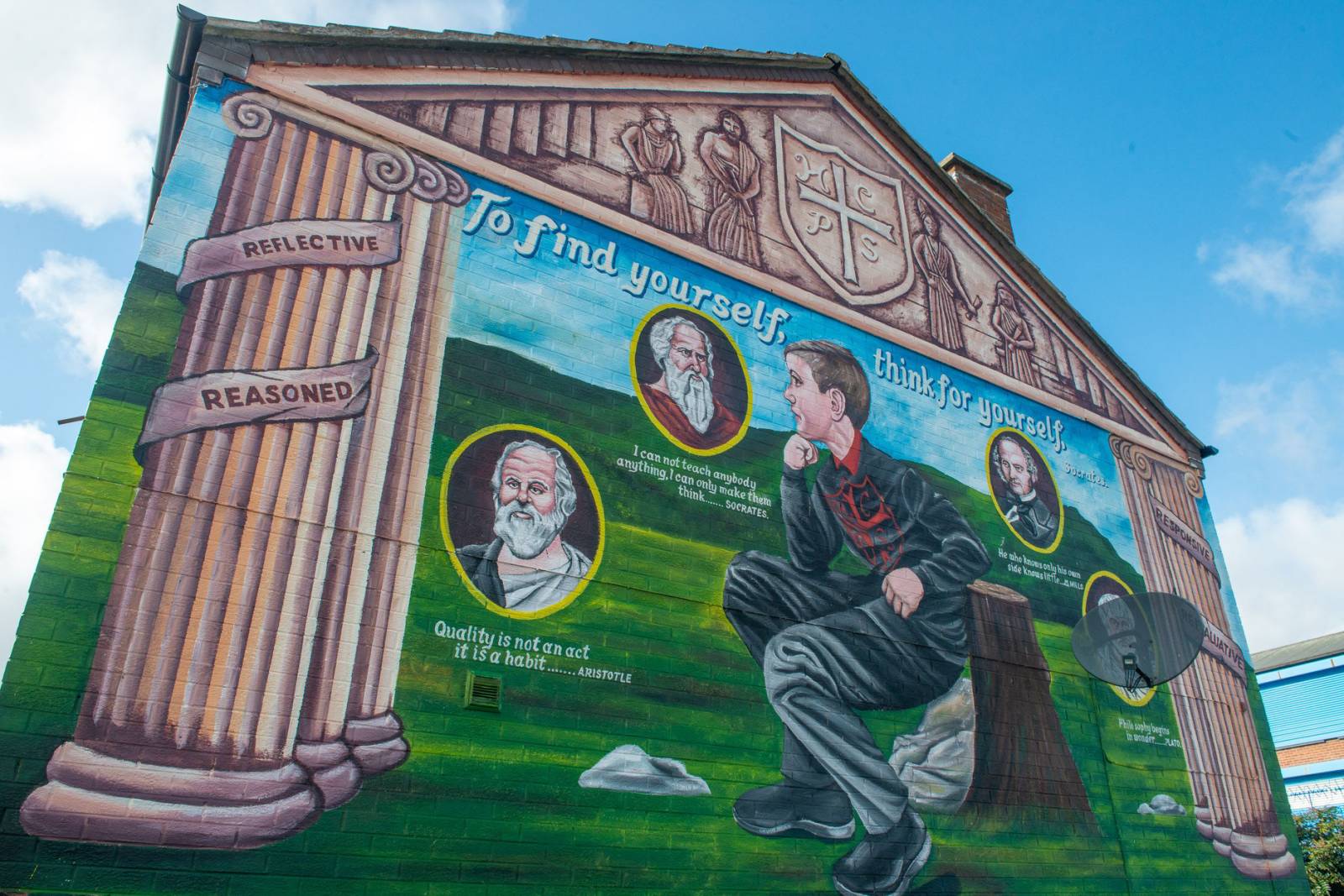Teaching Ancient Greek Philosophy as a Tool for Reducing School Violence
by Eugenia Manolidou
The initiative to teach Ancient Greek Philosophy in a public elementary school in Belfast is a shining example for modern education. It highlights the timeless and universal value of ancient Greek education, offering a wonderful and effective way to combat violence in schools.
In Greece, we often treat philosophy as a set of theories belonging to the past, much like how we approach Ancient Greek or any subject related to Ancient Greek Culture. However, Greek Philosophy has always been and remains a guide for cultivating thought, ethics, and social consciousness. Our great philosophers provided interpretations on how to live and behave as social beings, and their teachings are as relevant today as ever, which is what makes them immortal.
In Belfast, teaching philosophy in an elementary school offers a different approach to education. The principles of Greek philosophy help students develop critical thinking, self-awareness, and moral responsibility. Through philosophical discussions, students learn to negotiate, listen, and understand different viewpoints, resolving their differences without violence. It may sound unbelievable, but this is a true story from an elementary school in Northern Ireland, led by teacher Kevin McArevey, which has been documented in the film “Young Plato.” The documentary showcases the impact of philosophy on students’ lives and the reduction of violence in a very challenging area, North Belfast.
This documentary was awarded Best Feature Documentary at the Irish Film and Television Awards in 2022 and was nominated for an Oscar. Director Neasa Ní Chianáin said, “It’s a real privilege, and we’re delighted that it’s gotten this far… I hope ‘Young Plato’ is seen and people pay attention to its message because I think there’s something powerful there that could make a difference… What Kevin is doing gives us hope for the future.”
A similar initiative has been undertaken by teacher Elizabeth Smith in California, who teaches Stoic Philosophy to elementary school students. Smith uses the principles of Stoic philosophy to help children manage their emotions and face daily challenges. Her approach demonstrates the global value of ancient Greek philosophy and its potential to improve education across different cultural contexts.
Our society greatly needs the values, ideals, standards, and teachings of ancient Greek philosophy. Education based on these principles can shape new generations capable of contributing to the creation of a more peaceful and just society. Initiatives like those in Belfast, California, and schools such as Ridgeview Classical in Colorado, where Latin is taught from Kindergarten and Ancient Greek from 4th grade, and the Archimedean Academy in West Miami, where children are taught Greek and Mathematics in Greek for two hours a day starting from Kindergarten, show that Greek education based on ancient Greek culture is viable and can be used not only for the solid foundations it offers but also as a tool for addressing contemporary social issues.
These examples and many others around the world demonstrate that teaching Ancient Greek Language and Philosophy from elementary school, when done appropriately by inspired educators, can showcase the value of Greek education in modern education, offering solutions for a better and more peaceful future.
